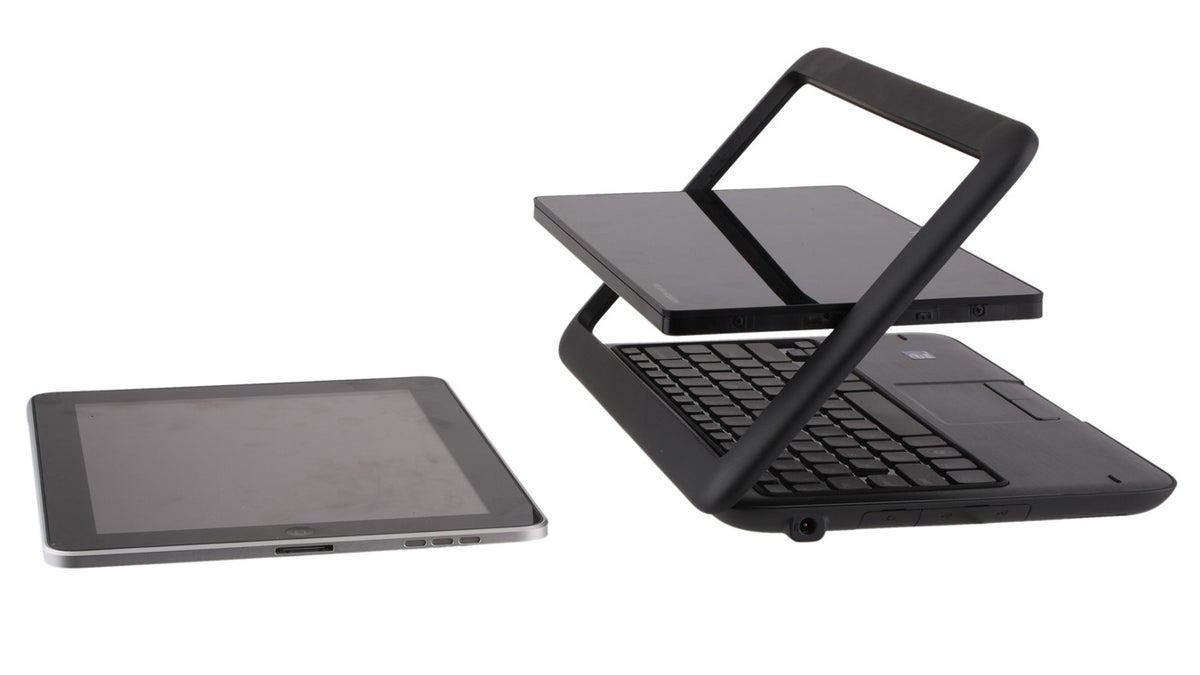Dell Duo: Are Windows tablets on the rise?
Convertible Windows 7 tablets are like the phoenix of the tech world: they keep returning when we least expect them. Are they here to stay, despite Android tablets and the iPad?

There's the iPad, and there are
However, are they shaping up to be better than what we've previously seen?
We reviewed the
Held in one's hand, the Duo's curved case feels more of a single piece that previous hinged convertibles. Compared to an iPad, it's far thicker, but it's not a device that feels absurd to use in tablet form.
With convertible tablets, the real appeal comes down to adding a physical keyboard and trackpad along with a full "computer" OS environment, offering no limitations from a computing standpoint. Instead, touch-enabled interfaces and software become the limiting factor on Windows 7 tablets. Unlike the entirely touch-oriented iOS and Android environments, Windows tablets need applications that can justify tablet use.
Dell's Inspiron Duo promises a unique Duo stage software interface for tablet mode, which could help make it as easy to use as a color e-reader or basic media playing device. A JBL speaker dock for tablet mode also reinforces the idea that the Duo's meant to enhance media playback. That's a hard area to master, especially since the iPad excels at media playback, with the exception of Flash.
Still, it seems like, for the right price, Windows tablets could be a reasonable choice for some, provided they clear the awkwardness threshold that makes usability a serious challenge in every one we've seen. To put it frankly, we've yet to see a convertible-tablet Netbook that we wouldn't prefer to use as a Netbook.
Has exposure to the iPad made you more ready to accept a convertible Netbook? Or, would you rather skip the Netbook part and just have a tablet instead?
Windows 7 convertible tablets keep hanging around, much like a dodo that simply refuses to evolve. Maybe, just maybe, that stubbornness will pay off when a viable Netbook/tablet hybrid design finally offers everything we've been looking for. Or, this will simply be an evolutionary bump in the road.

